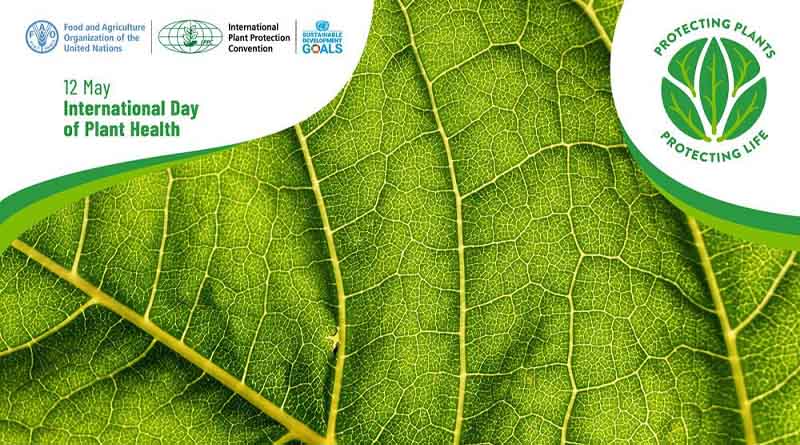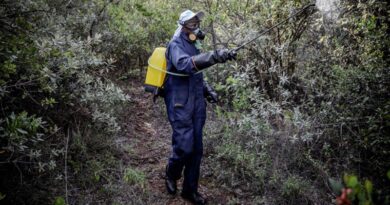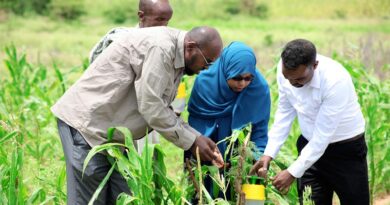CABI highlights the power of data at International Day of Plant Health event
16 May 2023, UN: CABI has highlighted the importance of harnessing the power of data for plant health and environmental protection at an International Day of Plant Health (IDPH) 2023 hybrid event.
IDPH, which was held on 12 May, is designated by the United Nations to raise global awareness on how protecting plant health can help end hunger, reduce poverty, protect biodiversity and the environment and boost economic development.
Dr Ulrich Kuhlmann, Executive Director, Global Operations, gave a presentation at the event organised by the Food and Agriculture Organization of the United Nations (FAO) in collaboration with the International Plant Protection Convention.
He said “data collection and effective analysis are essential to maintain stable food stores” for a global population expected to reach nearly 10 billion by 2050. Dr Kuhlmann added that this is particularly poignant in light of the challenges posed by climate change.
Speaking at the IDPH by remote video conferencing, Dr Kuhlmann said, “As the global climate changes, the agricultural sector is feeling its effects.
“Crucial operational changes to produce smarter solutions and reduce environmental impact have never been more important. Data collection and effective analysis are essential to maintain stable food stores for future generations.
“In short, we need to step up crop production significantly to cater for the growing number of people and tools that collect, store and share data along the agricultural value chain are vital to this.”
IDPH is a key legacy of the International Year of Plant Health 2020 and calls on everyone to raise awareness and act to keep our plants healthy and protect the environment and biodiversity.
The world’s population depends upon plants for 80% of the food that is eaten and 98% of the oxygen breathed.
However, international travel and trade have been associated with the introduction and spread of plant pests – like the fall armyworm (Spodoptera frugiperda) – which account for around 40% of all crop losses.
Invasive species, such as the woody tree Prosopis julifora, are also one of the main drivers of biodiversity loss and threaten the delicate web of life that sustains our planet.
Dr Kuhlmann added, “The administration of pesticides has been a contentious issue due to its side effects on the ecosystem and human health.
“Data allows farmers to manage this better by recommending what pesticides to apply, when, and by how much. By monitoring it closely, farmers can adhere to government regulations and avoid overuse of chemicals in food production.”
He referred to the CABI BioProtection Portal as being an example of an open access global digital resource that enables user to correctly identify, source and apply registered biocontrol and biopesticide products against agricultural pests.
Dr Kuhlmann also mentioned other resources which can help smallholder farmers and extension workers be more prepared for pest outbreaks which can put their yields, livelihoods and food security at risk.
The CABI-led Pest Risk Information Service (PRISE), for example, drew upon data from a variety of sources – satellite observations, weather data, geographic data, and details about the biology of pests – to advise on the best time to act against a pest in any given place.
Furthermore, the Global Burden of Crop Loss project, which CABI is also leading on, aims to provide rigorous, authoritative evidence on impacts, causes, and risk factors of crop loss.
It is hoped that the drivers and impacts of crop loss, will, accordingly, help direct funding, policy and research efforts to reduce crop loss at the farm level.
The PlantwisePlus programme was also highlighted as a way of helping smallholder farmers incomes and grow safer and higher quality food through sustainable approaches to crop production.
Also Read: Decrease in area under Summer Crops in the country; Paddy down by 6 percent
(For Latest Agriculture News & Updates, follow Krishak Jagat on Google News)















